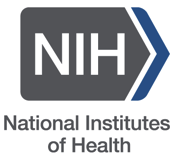|
Thursday, October 24, 2013, 08:00am - 04:00pm
The I2C Conference is a full-day event to help you get your technology moving forward. Come hear three in-depth panels on Innovation, Commercialization and Financing, including speakers from MedImmune Ventures, NASA/Goddard, NIH, Northrop Grumman Information Systems, University of Maryland and many more. Enjoy lunch with your Table Host to discuss issues affecting your innovation or small business with a subject matter expert from a federal lab, university tech transfer office, venture capital, business service organization and others. Tour the wealth of information in our Exhibit area. Apply to pitch your business for feedback at ConnecTech – spaces open for only 6 applicants until October 4th. Register today at the Early Bird rate of $30 to save $10 before the price increases on October 4th!
back to top 
 DreamIt Health Baltimore is a healthtech accelerator that will select up to ten startups from around the world to take up residence in the heart of Charm City and achieve in four months what might otherwise take years. The program is designed to help these teams tackle significant problems in the healthcare industry and achieve critical business milestones. We do this by enabling access to people and resources normally out of reach, by removing as many obstacles as possible, and with guidance from successful entrepreneurs who have been there before and done it before. Participants will have the opportunity to work closely with all corners of Johns Hopkins and tap into the region’s wealth of federal healthcare institutions including CMS, FDA and NIH. The capstone of the program, Demo Day, gives these teams the opportunity to unveil their products and progress before a few hundred early-stage investors and key industry figures. DreamIt Health Baltimore is a healthtech accelerator that will select up to ten startups from around the world to take up residence in the heart of Charm City and achieve in four months what might otherwise take years. The program is designed to help these teams tackle significant problems in the healthcare industry and achieve critical business milestones. We do this by enabling access to people and resources normally out of reach, by removing as many obstacles as possible, and with guidance from successful entrepreneurs who have been there before and done it before. Participants will have the opportunity to work closely with all corners of Johns Hopkins and tap into the region’s wealth of federal healthcare institutions including CMS, FDA and NIH. The capstone of the program, Demo Day, gives these teams the opportunity to unveil their products and progress before a few hundred early-stage investors and key industry figures.
For more information visit DreamIt Health Baltimore
back to top 
Christy  Wyskiel is the new senior adviser to the president for enterprise development at Johns Hopkins University. Wyskiel has previously worked as an investor in early stage and startup companies. She has also provided business and management support to startups, such as Hopkins spinout GrayBug. Wyskiel is the new senior adviser to the president for enterprise development at Johns Hopkins University. Wyskiel has previously worked as an investor in early stage and startup companies. She has also provided business and management support to startups, such as Hopkins spinout GrayBug.
Wyskiel officially takes on her new role leading Hopkins’ tech transfer office Jan. 1. But she’s already busy getting the lay of the land and helping map out what will come next for Hopkins with regard to technology commercialization.
back to top 

When Pascal Soriot took the reins of AstraZeneca last fall, he said he planned to corral firms with promising innovations in their pipeline to reinvigorate the Anglo-Swedish pharma’s offerings.
And so he has – to the tune of more than $1 billion.
Since the former chief operating officer of Roche AG was named CEO on Oct. 1, 2012, the firm has made five acquisitions, five collaborations with other pharmas to develop drugs, and entered two licensing deals. Six of the 12 moves are tied to cancer treatment developments, a core focus for the firm, while the remaining are in diabetes and renal, kidney, cardiovascular and respiratory diseases.
back to top 

Governor Martin O’Malley today joined with Montgomery County Executive Isiah Leggett and City of Gaithersburg Mayor Sidney Katz to announce that Emergent BioSolutions is expanding into a new headquarters building in Gaithersburg, and also plans to make improvements to its existing Research and Development site. As part of the expansion, the global pharmaceutical company will retain its existing 235 employees, and hire an additional 133 employees over the next five years.
“Emergent BioSolutions’ continued investment in Maryland helps solidify our position as a life sciences powerhouse,” said Governor O’Malley. “I am proud that Emergent BioSolutions is growing in Maryland, continuing to create jobs and working to develop life-saving vaccines that will give hope to millions of people around the world.”
back to top 

CareFirst BlueCross BlueShield will offer up to $1.5 million in grants to help medical providers develop telemedicine-based behavioral health services, the Baltimore insurer announced this week.
CareFirst wants to seed projects that use video conferencing or other technologies to allow doctors and others to diagnose and treat patients remotely.
back to top 

As an African-American man entering a Caucasian-dominated industry, Solomon Graham wasn’t intimidated when he founded Quality Biological in 1983, investing $10,000 of his own money to start the business.
The Gaithersburg company is one of the longest-operating biotechs in Montgomery County and has grown into a multimillion-dollar enterprise. It provides products and supplies for molecular and cell biology laboratories to use in infectious disease and cancer research.
back to top 

The latest of edition of Mtech News published by Maryland Technology Enterprise Institute.
back to top 

A prominent health system CEO implored the Washington region's employers to not drop their company health plans in response to the Affordable Care Act, predicting disastrous consequences for the industry if they do.
So far, most companies aren't taking that step. But enough have to raise the alarm for William "Bill" Robertson, CEO of Gaithersburg-based Adventist HealthCare, which operates two Montgomery County hospitals and network of affiliated services.
back to top 

“When I was a young entrepreneur, board meetings were by far the worst days of my life,” says Jeff Bonforte, the veteran company-builder who just sold his latest, Xobni, to Yahoo. “Board meetings are the height of insecurity for a CEO. Basically it’s a group of people who can both judge you and fire you based on that judgment.”
He’s had his fair share of bad experiences. At his first company, iDrive, he'd find himself every quarter standing in front of the room, sweating bullets, struggling to get through his meticulously-prepared slides. “It was a mess,” he says. “They’d just sit there and tell me how insufficient I was, how I needed to bring in someone more senior, or smarter. Then it just hit me. I don't need this. I don't need people to attack me for four straight hours. I need people who can help me.”
back to top 

MedImmune's venture arm has jumped in to lead a $12.5 million round for a Chapel Hill, NC-based startup that is working on a new drug to treat a common ailment spurred by chemotherapy. G1 Therapeutics, which was initially seeded by Hatteras Venture Partners to the tune of $600,000, says that the new funds will finance its IND work and point the company to proof-of-concept data on a drug designed to protect against myelosuppression--the loss of blood cells--during chemo. Hatteras Venture Partners and Mountain Group Capital contributed to the round.
G1 was founded on the work of Norman Sharpless at the University of North Carolina in Chapel Hill and Kwok-Kin Wong at Harvard Medical School. They concluded that a cyclin-dependent kinase 4/6 inhibitor could play a big role in protecting the bone marrow of chemo patients.
back to top 

Under Armour Inc. is hunting for the techies that can help the company beef up its fitness tracking device known as Armour39.
Armour39, a digital performance monitor launched in March, tracks an individual’s heart rate, calories burned and workout intensity, and provides a “WILLpower” score that reflects how hard an individual trained during a workout.
back to top 

QIAGEN N.V. (frankfurt prime standard:QIA) today announced the Empowered Genome Community, which is a first-of-its-kind initiative to help people who have had their genomes sequenced share, explore, and interpret their data with researchers and each other. To highlight how the community can spark new biomedical insight, QIAGEN also released an open collaborative analysis of myopia in 111 people whose genomes were sequenced through Harvard's Personal Genome Project (PGP), which is a public repository of well-phenotyped human genomes. Anyone - citizen scientist or full-time researcher alike - can directly review and help refine the analysis via QIAGEN's Ingenuity® Variant Analysis(TM) (https://variants.ingenuity.com/community-myopia) with the goal of jointly publishing robust insights on myopia next year.
back to top 

Billionaire oilman T. Boone Pickens plans to give Johns Hopkins University $20 million to help spur potentially vision-saving research at the school’s Wilmer Eye Institute.
The gift will be included in the 85-year-old’s estate and will create an endowment to fund a T. Boone Pickens Scholars program supporting scientists.
back to top 

The Nobel Assembly at the Karolinska Institute announced today that Randy W. Schekman, a Howard Hughes Medical Institute (HHMI) investigator at the University of California, Berkeley, Thomas C. Südhof, an HHMI investigator at Stanford University, and James E. Rothman of Yale University are the recipients of the 2013 Nobel Prize in Physiology or Medicine for their discoveries of machinery regulating vesicle traffic, a major transport system in our cells.
According to the Nobel Assembly, this year's Nobel Prize in Physiology or Medicine honors three scientists who have solved the mystery of how the cell organizes its transport system. Each cell is a factory that produces and exports molecules. For instance, insulin is manufactured and released into the blood and chemical signals called neurotransmitters are sent from one nerve cell to another. These molecules are transported around the cell in small packages called vesicles. The three Nobel Laureates have discovered the molecular principles that govern how this cargo is delivered to the right place at the right time in the cell.
back to top 

Osiris Therapeutics shares rose Friday morning after the company said it is selling some of its stem cell therapy technology, including its transplant treatment Prochymal, to Mesoblast Ltd. in a deal that could be worth more than $100 million.
Prochymal treats bone marrow transplant cells that attack the recipient’s body, and it is approved in Canada and New Zealand but isn’t being sold. Osiris said it wants to focus on businesses with the greatest commercial potential. Its remaining products include Grafix, which is used to treat chronic and acute wounds, Ovation, which is used in tissue repair, and Cartiform, a treatment for acute cartilage injury.
back to top 

There have been more than 30 initial public offerings of biotechnology companies so far this year, and there’s a line around the block of promising new entrants looking to debut on the public markets.
Angelika Warmuth/European Pressphoto Agency But don’t call it a bubble. Those in the know are calling it a boom, and saying the good times are likely to continue for biotech, even in the face of clinical setbacks and other bumps in the road.
back to top 

This Notice is to provide NIH’s extramural community with information on how NIH is resuming operations after the government shutdown.
eRA Systems Availability
eRA systems will be available for use by the applicant/grantee/reviewer community on Monday, October 21.
Rescheduling October Application Due Dates
All October grant application due dates have been rescheduled as follows: Standard Due Dates:
back to top 

Cleveland Clinic is in the midst of its annual Cleveland Clinic Medical Innovation Summit today at the new Global Center for Health Innovation. More than 1,100 entrepreneurs, investors, executives and clinicians have gathered for a show and tell of new ideas in the medical world. Cleveland Clinic Chief Information Officer C. Martin Harris talks about how the health system stays nimble on the innovation front.
Cleveland Clinic Innovations, the corporate venturing arm of Cleveland Clinic, was founded in 2000, and it has been hosting the Medical Innovation Summit since 2003. Since Cleveland Clinic Innovations was founded, it has:
back to top 

There is one certainty about the current regulatory process for drug approval in the United States and Europe: No one likes it.
Manufacturers are frustrated by the need for large, complex, and lengthy clinical-development programs that often hinge on meeting a single endpoint in one pivotal clinical trial. As a result, the cost to bring a drug to market has been estimated to be well over $1 billion — and it may be much higher. Patients and providers are disturbed by lack of timely access to medicines that show early promise in addressing significant unmet needs. Even regulators, who are responsible for enforcing the current structure, chafe at what manufacturers typically present to them: successful trial results in patients who are carefully selected to show the drug offers benefits but who are not very representative of the broader population likely to receive it. Payers then have a mess on their hands: pressure to pay for premium-priced medications that, when broadly employed, don’t offer much therapeutic benefit over existing alternatives.
back to top 

The research, by Gary Dushnitsky, Associate Professor of Strategy and Entrepreneurship, London Business School and his co-author Dr Alvarez-Garrido, is featured in the British Venture Capital Association’s report ‘The Missing Piece’ and finds that corporate venture capital is now the driving force behind cutting edge medical innovation.
Dr Dushnitsky, also Academic Director, Deloitte Institute for Innovation and Entrepreneurship, said, “Biotech start-ups are increasingly turning to corporate venture capital arms, which are steadily on the rise, while traditional venture capital funds are partially drying out. In a recent Nature Biotechnology study, my co-author and I find that the shift in funding patterns is resulting in an increase in scientific publications as well as patenting output.
back to top 

Nutty things are happening in biotech. Irrational exuberance has returned. Generalist investors with lots of money are suddenly buying these stocks first and asking questions later. Companies can fire off meaningless press releases, and be rewarded. I heard a big-time money manager talk the other day about a recent biotech IPO being one of the “best performers” in the market. It had a two-week track record, and had done nothing fundamental to earn its tag as a “best performer.”
If markets are driven by cycles of fear and greed, and I believe they are, we are in the greed cycle.
back to top 

Investors are pouring venture capital dollars into the Washington region at a pace not seen in more than a decade.
Companies across the Washington region have attracted $1.15 billion in the first three quarters of the year, more money than the first three quarters of any year since 2001.
back to top 

Investments in electronic health records, tools to help hospitals absorb physician practices anda group working with hospital systems to help them set up their own insurance plans. Those three health IT companies helped drive venture capital investment in the software sector, which hit a 12-year high in the third quarter. Medical device and biotechnology companies collectively marked their lowest investment for a nine month period since 2005, according to the MoneyTree Report by PricewaterhouseCoopers and the National Venture Capital Association. It is based on data from Thomson Reuters.
About $3.6 billion was invested in the software sector and there were 42o deals in the quarter.
back to top 

You can purchase 14 gallons of organic milk or 396 lollipops. You can give her 33 rides on the Ferris wheel at the state fair, or you can get him a couple of violin lessons. You could put the money in a savings account, you could buy her her very own LeapFrog LeapPad Explorer digital learning tablet, or you could buy enough pizzas to feed all of her friends on the block. So many options, so many choices.
I took that money and got my daughter's genes tested, ordering up an analysis of the composition of her very small self and its odds of living a long and healthy life. And in so doing, I in some small way tied her fate to the success of the company doing the analysis, a genetic-testing startup called 23andMe in Mountain View, California.
back to top 

AstraZeneca and Taiwan’s National Research Program for Biopharmaceuticals (NRPB) today announced a collaborative program to support academic research proposals using open innovation as a catalyst for drug discovery. The program will connect expert physicians and scientists with a wide range of high-quality, small molecule compounds and biologics developed by AstraZeneca.
Successful research proposals submitted from academic institutes in Taiwan will be funded by the NRPB to explore new therapeutic uses for specific AstraZeneca compounds which may in turn lead to the development of novel therapies for patients. Further financial details were not disclosed. Areas of high interest include cardiovascular, metabolic, respiratory, inflammation, autoimmune, oncology, infection and neuroscience diseases.
back to top 

Each year, a committee of Cleveland Clinic doctors asks hundreds of their colleagues to weigh in on which emerging healthcare technologies they think will help shape their practice over the next 12 months.
Then, the committee evaluates nominations based on clinical impact, probability of commercial success, progress in commercialization and significant human interest, and produces a top 10 list announced at the end of the Clinic’s annual Medical Innovations Summit.
back to top 

Biocrossroads, which provides money and support to Indiana’s life sciences industry, announced the seven finalists who stand to gain startup funding in its annual New Venture Competition. Six have biotech or healthcare in their sights. On Oct. 21, five of these companies will compete for $25,000 and access to the Indiana Seed II Fund‘s staff and network for early-stage business support at the Indiana Life Sciences Summit. Second and third place in this competition will rake in $15,000 and $10,000 respectively.
“The New Venture Competition has proven to be a great way for us to find and reward promising companies, and is an excellent opportunity for the competingcompanies to gain some exposure within Indiana’s life sciences community,’ David Johnson, president and CEO of BioCrossroads, said in a release.
back to top 

StartUp Health, a New York-based incubator for health technology startups, admitted 14 new companies into its three-year development program this week. The program, which received 1,200 applications in the past year, aims to give new medical companies long-term mentoring and access to capital.
The new entrants include companies working on medication adherence, remote medical services and patient engagement in physical therapy. Cohero Health, a one-year-old company based in New York, aims to help kids with chronic asthma manage their condition.
back to top 

Your liver could be "eating" your brain, new research suggests.
People with extra abdominal fat are three times more likely than lean individuals to develop memory loss and dementia later in life, and now scientists say they may know why.
back to top 
|